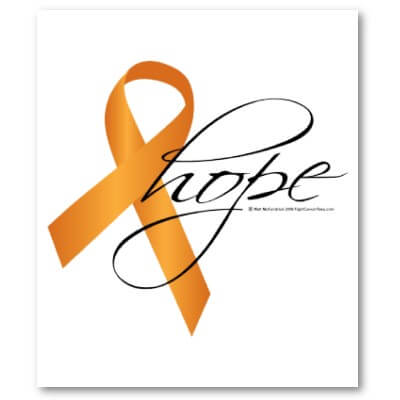Editor’s Note: In honor of Blood Cancer Awareness Month and Childhood Cancer Awareness Month, OTW is featuring articles from those who have personal experience with these cancers. We encourage you to give these articles a good read, and consider how you can get involved.
 I don’t have cancer, but I think about cancer all of the time. Why do we get cancer? Why is it that some cancers respond to therapy and some don’t? How do we predict who is going to respond? Can we cure cancer?
I don’t have cancer, but I think about cancer all of the time. Why do we get cancer? Why is it that some cancers respond to therapy and some don’t? How do we predict who is going to respond? Can we cure cancer?
I think about it all the time because it is my job. I work in cancer drug discovery for a major pharmaceutical company. Before that, I did four years of postdoctoral studies dedicated just to finding how the cancer microenvironment controls tumor growth and metastasis. I love my job! I hate the cancer! So I fight, every day, for those people that do get cancer, with the hope that what I do can help give them life or least extend their life.
So, I go to work and I am fascinated every day by how much more I am going to find and learn about cancer, because before I can even think about new therapy, I need to understand the cancer. The idea is, if we can understand it, we can try to beat it.
And we have made tremendous progress in our understanding of how the cancer functions, but still so much more is lacking. For example, we can almost completely cure Chronic Myelogenous Leukemia (CML), because we know what makes that cancer grow. But with other cancers, it’s not always that simple all of the time. Most cancers are extremely heterogeneous and adaptable, and that makes them hard to cure.
And yet, I still hope — I still believe — we can cure cancer! Why? I think it is a combination of drive, compassion, intellectual pursuit, hope, curiosity, desire to help, and commitment to never stop for the benefit of someone else. I am surrounded by like-minded people every day at work and that in itself is a great stimulus to continue to hope and give my best work.
And I think about family, friends and acquaintances that have cancer all the time, too. Sometimes people say that I should leave the emotional “stuff” behind, so to help focus better on the work that needs to be done. But I am an emotional person (I think most of us are) and though the pain is great, and I end up crying a lot, I find extreme motivation and strength to never give up, for them, through it all. So, I think being emotional does not hinder but helps me to give my best work. And that is my promise for everybody that has ever had or has cancer — I am never going to give up the search for a cure! I hope that this brings hope for many in pain.

Vesi!
Thank you for all you do!!
I know it will bring hope to many…
Vesi, I can’t tell you how encouraging it is to hear from someone who is actually doing this research and helping to make medical advancements toward cures. As a person who is in remission from APL, and who has had several dear family members battle cancer, I can’t tell you what a hero I think you are. THANK YOU from the bottom of my heart. =)
Hi Vesi – After reading this, I just want to have a glass of wine with you and chat about all the exciting things happening in cancer research and be as emotional as we want to be! I was inspired by your blog and grateful for people working in this field who aren’t scared to bring their emotions along for the ride.
Thanks,
Victoria
Oh thanks Steph, Lindsay and Victoria! Lindsay-you are the hero! I am SO happy that you are in remission!!
Victoria, I would love to do that! I am very passionate about cancer research and what we can do to stop this disease!!
Hi Vesi,
Bruce sent out a link to your blog entry. I loved reading it. I’m so grateful for all that you are doing and the love and passion with which you are doing what you do!
Godspeed,
Cheri
Hi Vesi, I always follow Bruce’s newletters and am delighted to see what it is that you actually do. I prayed many times that God would open a work for you and am also delighted to know that you are using your talents for others. I don’t know if you knew it or not but I too am a survivor, I was diagnosed with abdominal CA in May of ’09 just before my annual trip to the Ukraine childrens camp. I was blessed to be one of those people who responded to treatment well …..no loss of hair or appetite, red and white cells and platelets all stayed in the high normal range and to this day other than some minor neuropathy I look back on the whole experience as a lesson from a sovereign God. After all every aspect of our lives is in gracious His hands and under His control, which is why some of us respond to treatment and some don’t. I think I can understand your emotional invovlement having walked that path. You keep working and I’ll keep praying. Thank you, your friend, Wayne Bright